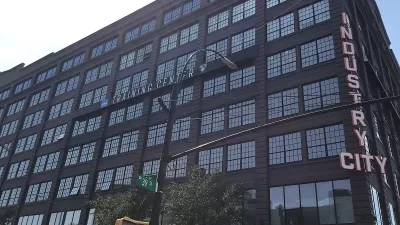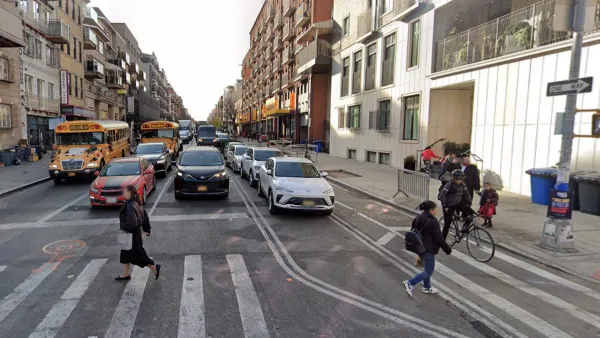About 50 property owners in the trendiest of New York boroughs have launched a fledgling solar microgrid—sometimes called distributed or peer-to-peer generation. Someday, such arrangements could put a huge dent in the utility industry.
"In a promising experiment in an affluent swath of [Brooklyn], dozens of solar-panel arrays spread across rowhouse rooftops are wired into a growing network," writes Diane Cardwell. "Called the Brooklyn Microgrid, the project is signing up residents and businesses to a virtual trading platform that will allow solar-energy producers to sell excess-electricity credits from their systems to buyers in the group, who may live as close as next door."
So far, Brooklyn Microgrid has 50 participants—so there's a lot of room left to grow. The microgrid concept, like this case study of its application, is still nascent, but with a long-touted ability to disrupt the energy market.
"The ability to complete secure transactions and create a business based on energy sharing would allow participants to bypass the electric company energy supply and ultimately build a microgrid with energy generation and storage components that could function on their own, even during broad power failures," writes Cardwell. Cardwell looks beyond Brooklyn for other examples of distributed energy generation, finding leading-edge technologies and systems already at work in places like Australia, Germany, and Bangladesh. Planetizen covered a microgrid case study in Santa Monica, California in 2016.
Cardwell also includes a lot of details about the state initiatives that allowed the creation of the Brooklyn Microgrid program.
FULL STORY: Solar Experiment Lets Neighbors Trade Energy Among Themselves

Planetizen Federal Action Tracker
A weekly monitor of how Trump’s orders and actions are impacting planners and planning in America.

Maui's Vacation Rental Debate Turns Ugly
Verbal attacks, misinformation campaigns and fistfights plague a high-stakes debate to convert thousands of vacation rentals into long-term housing.

San Francisco Suspends Traffic Calming Amidst Record Deaths
Citing “a challenging fiscal landscape,” the city will cease the program on the heels of 42 traffic deaths, including 24 pedestrians.

Amtrak Rolls Out New Orleans to Alabama “Mardi Gras” Train
The new service will operate morning and evening departures between Mobile and New Orleans.

The Subversive Car-Free Guide to Trump's Great American Road Trip
Car-free ways to access Chicagoland’s best tourist attractions.

San Antonio and Austin are Fusing Into one Massive Megaregion
The region spanning the two central Texas cities is growing fast, posing challenges for local infrastructure and water supplies.
Urban Design for Planners 1: Software Tools
This six-course series explores essential urban design concepts using open source software and equips planners with the tools they need to participate fully in the urban design process.
Planning for Universal Design
Learn the tools for implementing Universal Design in planning regulations.
Heyer Gruel & Associates PA
JM Goldson LLC
Custer County Colorado
City of Camden Redevelopment Agency
City of Astoria
Transportation Research & Education Center (TREC) at Portland State University
Jefferson Parish Government
Camden Redevelopment Agency
City of Claremont




























